Water Heater Repair: Essential Troubleshooting Tips for Santa Fe
Experiencing issues with your home's water heater can be frustrating and costly. Our comprehensive guide offers practical tips and expert advice to help you troubleshoot and address common water heater problems. From pilot light issues to leaks, we provide step-by-step solutions to keep your water heater running smoothly. Don't let water heater problems disrupt your daily routine - let our guide be your go-to resource for effective repairs.

How does a water heater work?
Understanding the basic operation of a water heater is essential for effective troubleshooting. The process begins with cold water entering the tank, which is then heated using electricity or gas. The hot water is then distributed through the plumbing system to your faucets, while the tank refills to maintain a constant supply. Having this knowledge allows you to identify and resolve any potential issues that may occur during this heating and distribution process.


To avoid breakdowns, proper water heater maintenance is essential
Regular maintenance is crucial to keep your water heater in optimal condition and ensure a reliable supply of hot water. Simple tasks such as annual draining and flushing help prevent sediment buildup, which can affect the heater's efficiency and lifespan. It is also important to regularly inspect the temperature and pressure relief valve to ensure it is functioning properly and to maintain safety. By incorporating these maintenance practices into your routine, you can enjoy hot water whenever you need it and avoid unexpected breakdowns.
What are common signs a water heater
needs to be repaired or replaced?
Water heaters play a vital role in supplying hot water, but they can experience issues over time. To ensure their proper functioning, it's important to monitor them for potential problems. Keep an eye out for these signs that may indicate the need for water heater repair or replacement:

Insufficient hot water: If your water heater isn't producing enough hot water or if the water temperature fluctuates, it could be a sign of a malfunction.
Strange noises: Unusual noises, such as popping, hissing, or rumbling sounds, may indicate sediment buildup or other internal issues.
Leaks or water pooling: Any signs of water leakage or pooling around the water heater should be addressed promptly to prevent further damage.
Foul odors: Foul-smelling water or a noticeable rotten egg odor can indicate bacterial growth within the tank or a reaction with the anode rod.
Rust-colored water: If the hot water appears discolored or rusty, it could indicate corrosion within the tank, which may require repair or replacement.
Age of the water heater: Consider the age of your water heater. If it's nearing or beyond its expected lifespan (typically 8-12 years for tank models and longer for tankless models), it may be time to consider a replacement.
If you notice any of these signs, it's advisable to contact a professional water heater repair service near you. They can assess the situation, diagnose the problem, and provide the necessary repairs or recommend a suitable replacement.
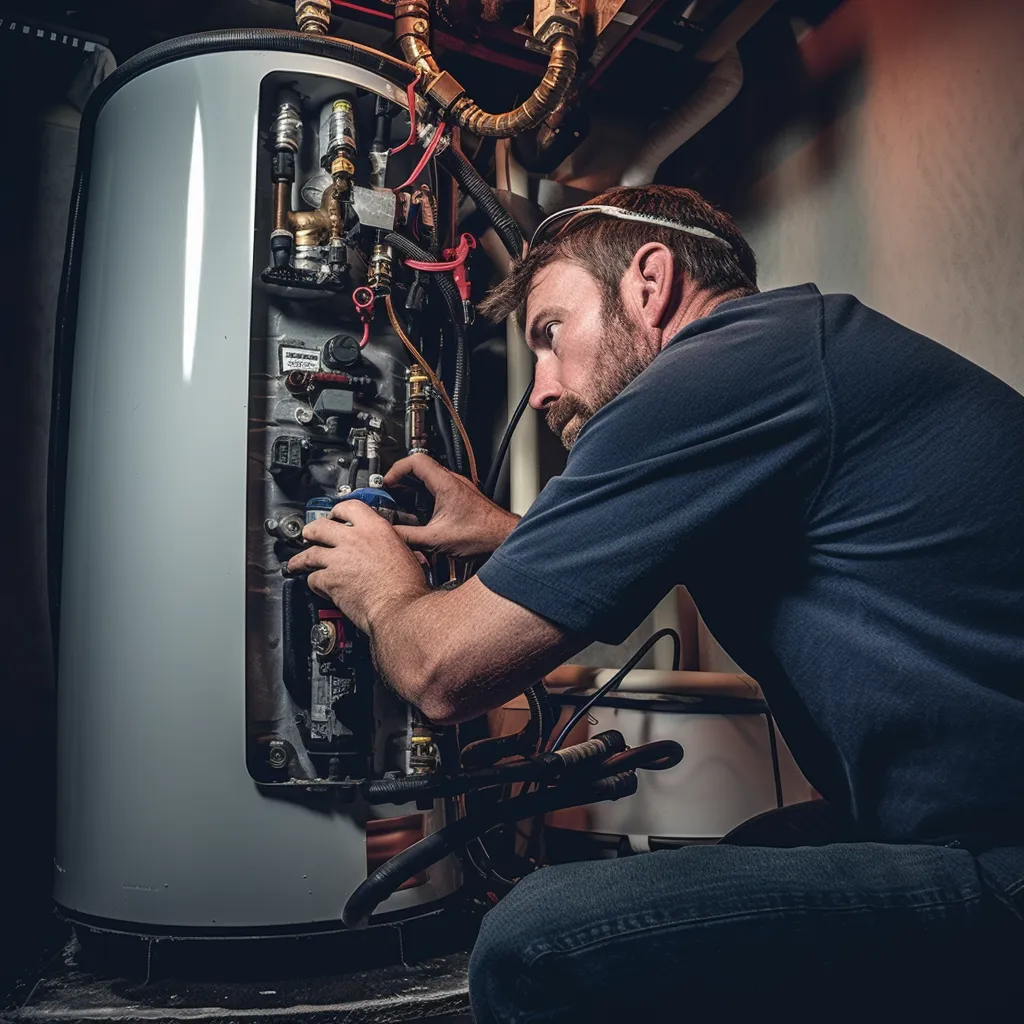
What are the possible causes of water heater malfunctions?
Water heater malfunctions can be caused by various factors such as faulty thermostats, electrical issues, or sediment build-up. Regular maintenance and vigilance to warning signs can help you avoid unexpected breakdowns and ensure uninterrupted heating.
Scheduling regular maintenance checks and addressing issues promptly is recommended. If you are unsure or if the problem persists, it is advisable to seek the assistance of a professional to diagnose and resolve the underlying causes of the water heater malfunction. This ensures the long-term reliability and efficiency of your water heating system.

Check the temperature setting on your water heater
Checking your water heater temperature is crucial for both efficiency and safety. Setting the temperature too high can risk scalding and energy waste, while setting it too low may result in insufficient hot water. Optimizing the temperature is a quick task that ensures your comfort and convenience in the long run. The Department of Energy recommends setting the water heater temperature to 120°F (49°C) for optimal efficiency and safety.


Perform regular
visual inspections
Regular visual inspections of your water heater are important for maintaining its condition and identifying potential issues. Look for signs of leaks, such as water around the tank or connections. Check for rust or corrosion on the tank and components. Take note of any sediment buildup at the bottom of the tank. Listen for unusual noises coming from the heater. Ensure the temperature and pressure relief valve is functioning properly. If you notice any problems during your inspection, it's best to contact a professional for further evaluation and necessary repairs.

Test the water heater pressure relief valve
to make sure it works
To ensure the pressure relief valve of your water heater is working correctly, periodic testing is important. Locate the valve on your water heater and place a container underneath to catch any water. Carefully lift the lever to open the valve, allowing hot water to flow for a few seconds. Release the lever and observe if the water stops flowing. If the valve doesn't release water when lifted or continues to release water after closing, it may indicate a problem. In such cases, it is advisable to consult a professional plumber for inspection and potential replacement. Regular testing helps ensure the proper functioning of the pressure relief valve and maintains the safety of your water heater.
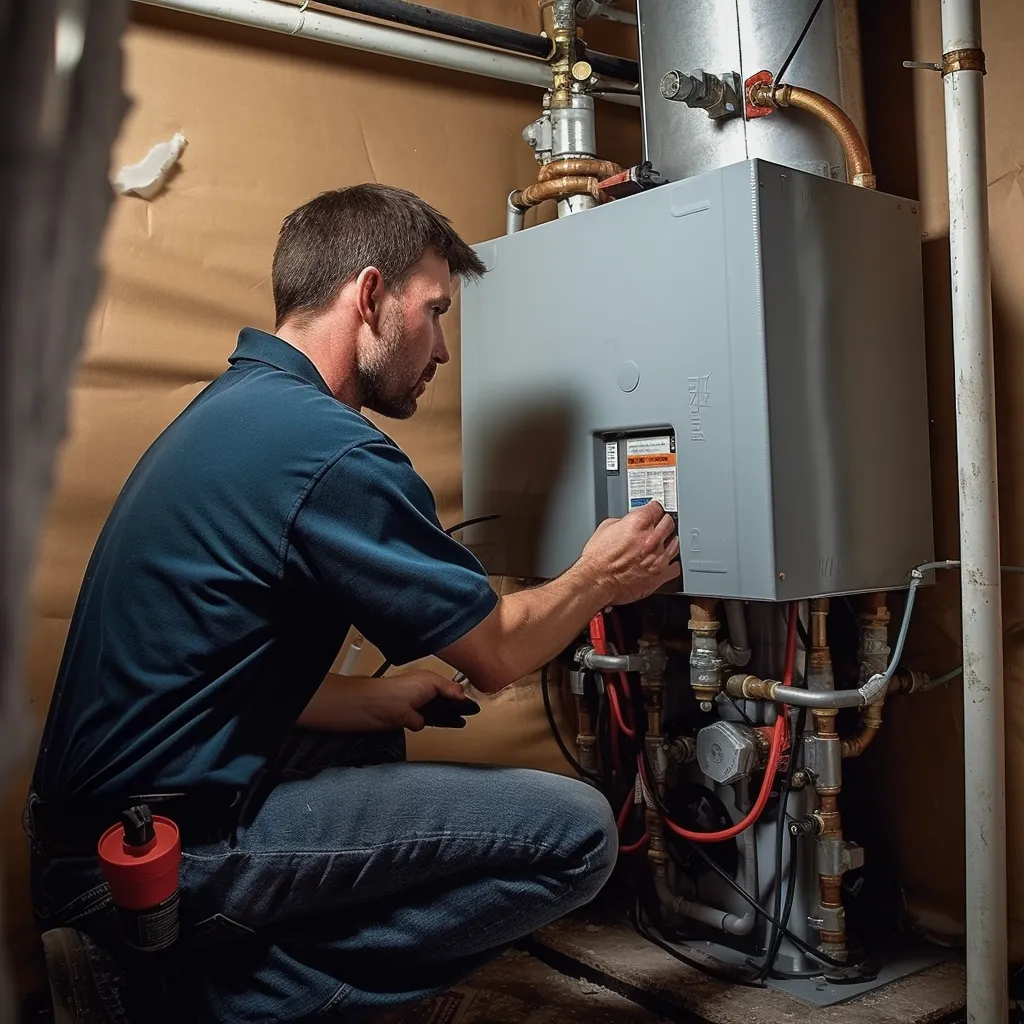
Check for signs of rust and corrosion
around the water heater tank
Performing regular inspections of your water heater tank is essential for preventive maintenance and minimizing the risk of leaks and accidents. Rust and corrosion may not always be visible, but they can lead to significant issues if left unchecked. By proactively identifying and addressing these issues, you can prevent potential leaks and extend the lifespan of your water heater. If you detect any signs of rust or corrosion during your inspection, it is best to rely on the assistance of skilled professionals who have the expertise to handle these problems effectively and safely.
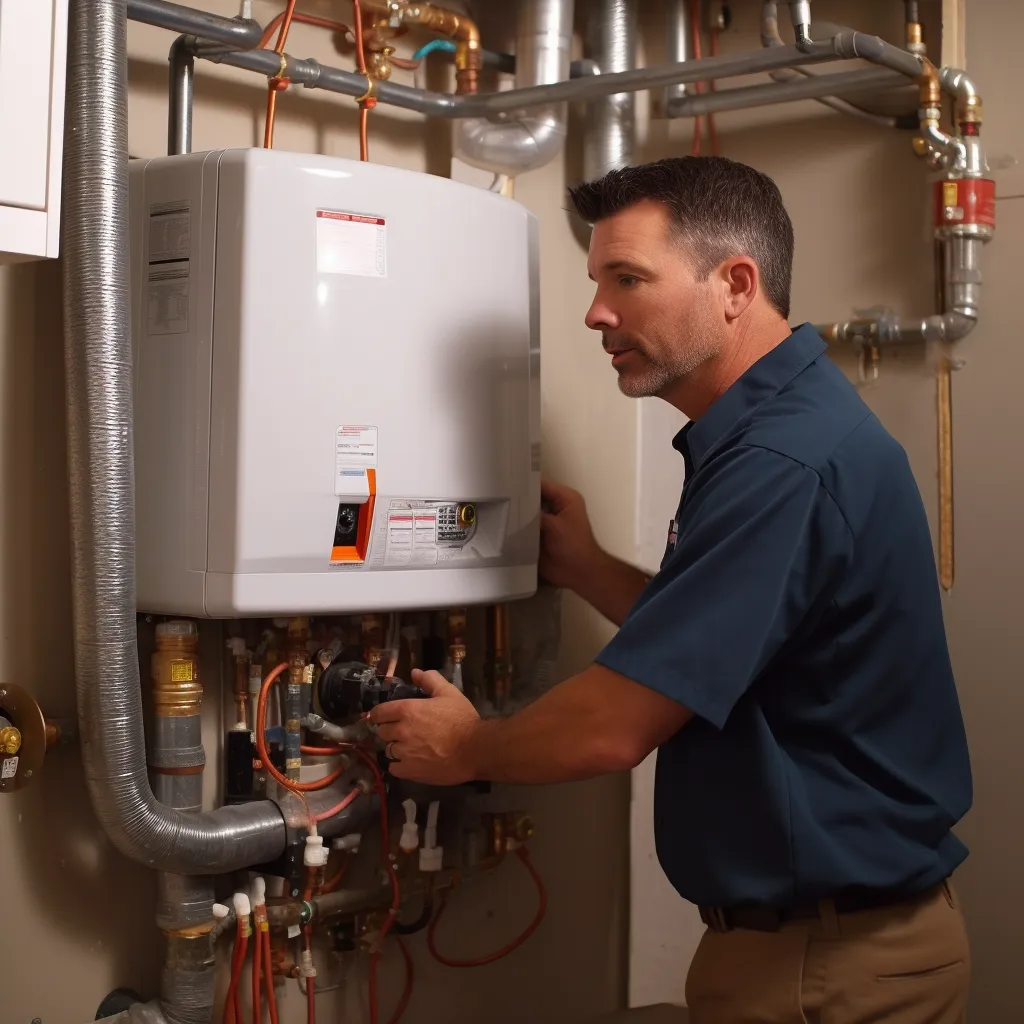
Water heater connections should be tight and secure
It is crucial to ensure that the connections are tight and secure. This is because a well-fitted and securely connected water heater not only guarantees efficient operation but also prevents potential leaks or accidents. When replacing a water heater, the first step is to carefully inspect the connections. This includes checking the pipe fittings, valves, and any other components involved. It is essential to make sure that these connections are properly tightened, as loose connections can lead to water leaks, structural damage, and even elevated utility bills due to wasted energy. To ensure a secure connection, it is recommended to use Teflon tape or pipe dope. These materials provide extra sealing and help to prevent leaks at threaded connections. Apply the Teflon tape or pipe dope in a clockwise direction to achieve the best results. Additionally, if the water heater has been in use for a while, it is necessary to inspect the condition of the connections. Over time, corrosion or wear and tear may weaken the joints. In such cases, it is advisable to replace any damaged or deteriorated components to maintain the integrity of the overall system. By paying attention to the tightness and security of the connections, homeowners can ensure a long-lasting and problem-free operation. It is always recommended to consult a professional plumber who specializes in water heater installation to ensure that every step of the replacement process is performed correctly and efficiently.
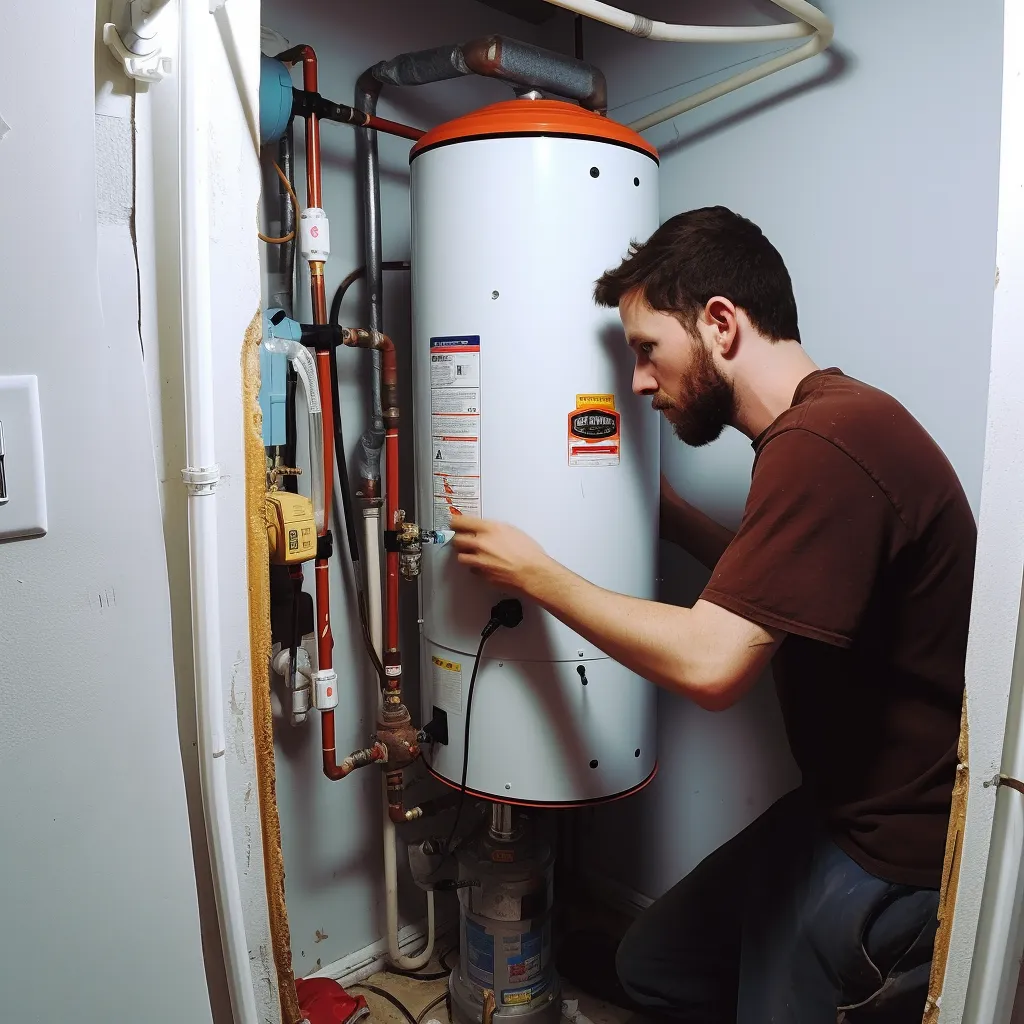
Keep the water heater and pipes free of sediment buildup
Regular maintenance and cleaning of your water heater is crucial to ensure its optimal performance and longevity. One of the major culprits that can hinder your water heater's efficiency is sediment buildup. If you reside in Santa Fe and are in need of a water heater replacement, it is wise to educate yourself on the importance of keeping your new water heater and pipes free from sediment accumulation. Sediment is a common issue in water heaters, especially in areas with hard water. Over time, minerals and debris can settle at the bottom of your tank, forming a layer of sediment. This sediment not only affects the quality of your hot water but can also cause problems like reduced heating efficiency, increased energy consumption, and even damage to the tank and components. By staying vigilant and incorporating these practices into your routine, you can keep your water heater and pipes free of sediment buildup. This will not only prolong the lifespan of your new water heater but also ensure efficient performance and reliable hot water supply for years to come.
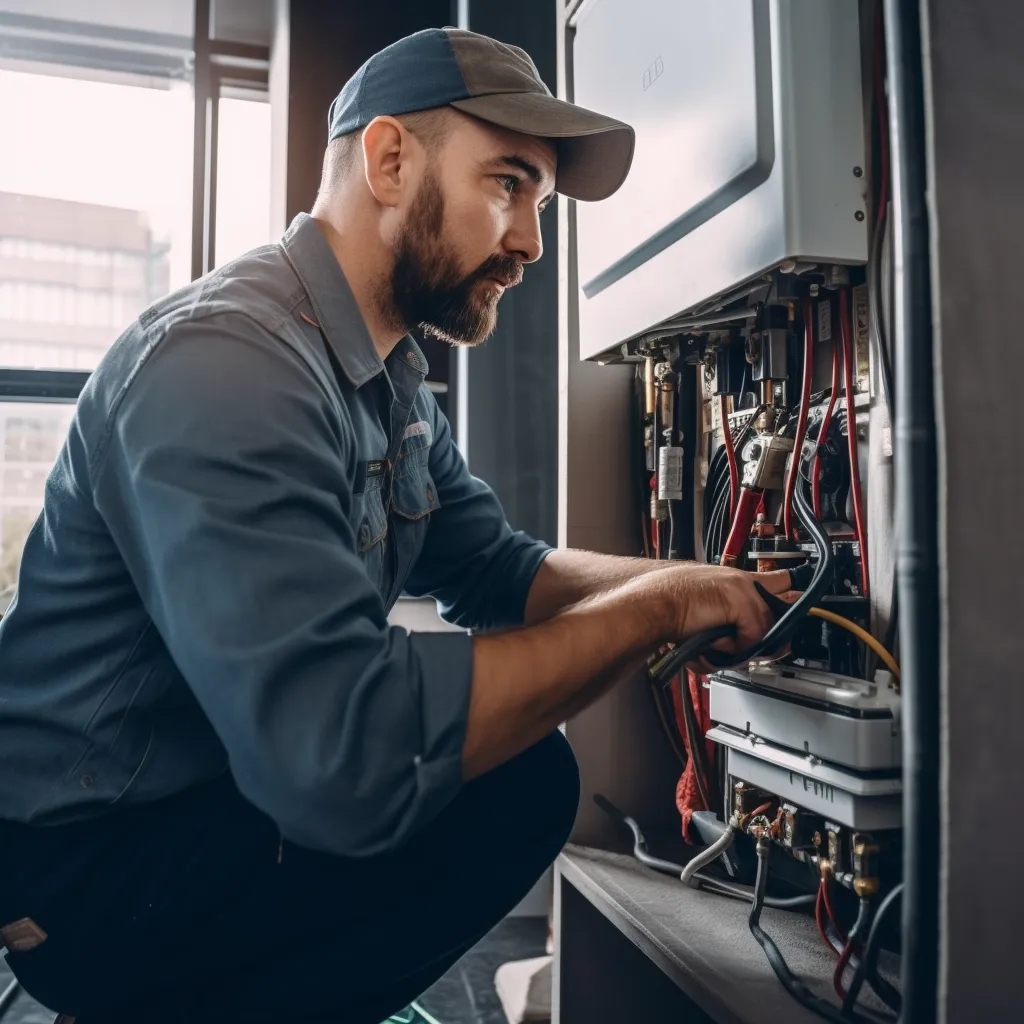
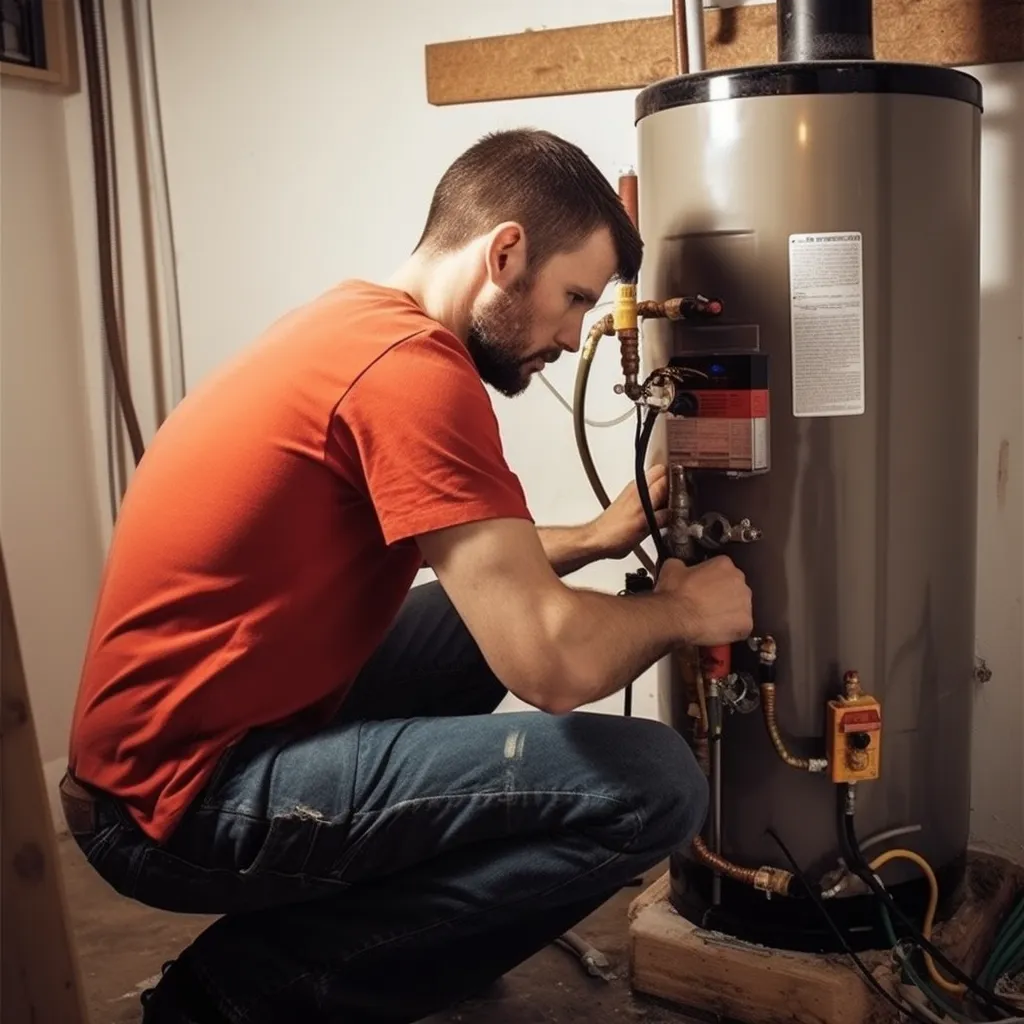
Keep the water heater burner assembly clean
Keeping the burner assembly of your water heater clean is essential for its efficient and safe operation. Accumulated debris and dust can obstruct the flame and hinder proper heating, potentially causing damage to the system. Regular cleaning of the burner assembly is necessary to remove any dirt or obstructions.
Cleaning the burner assembly offers several advantages. It helps prevent costly repairs that can result from clogged burners or damaged components. By promptly removing debris, you can maintain the optimal functioning of your water heater and avoid issues that may compromise its performance.
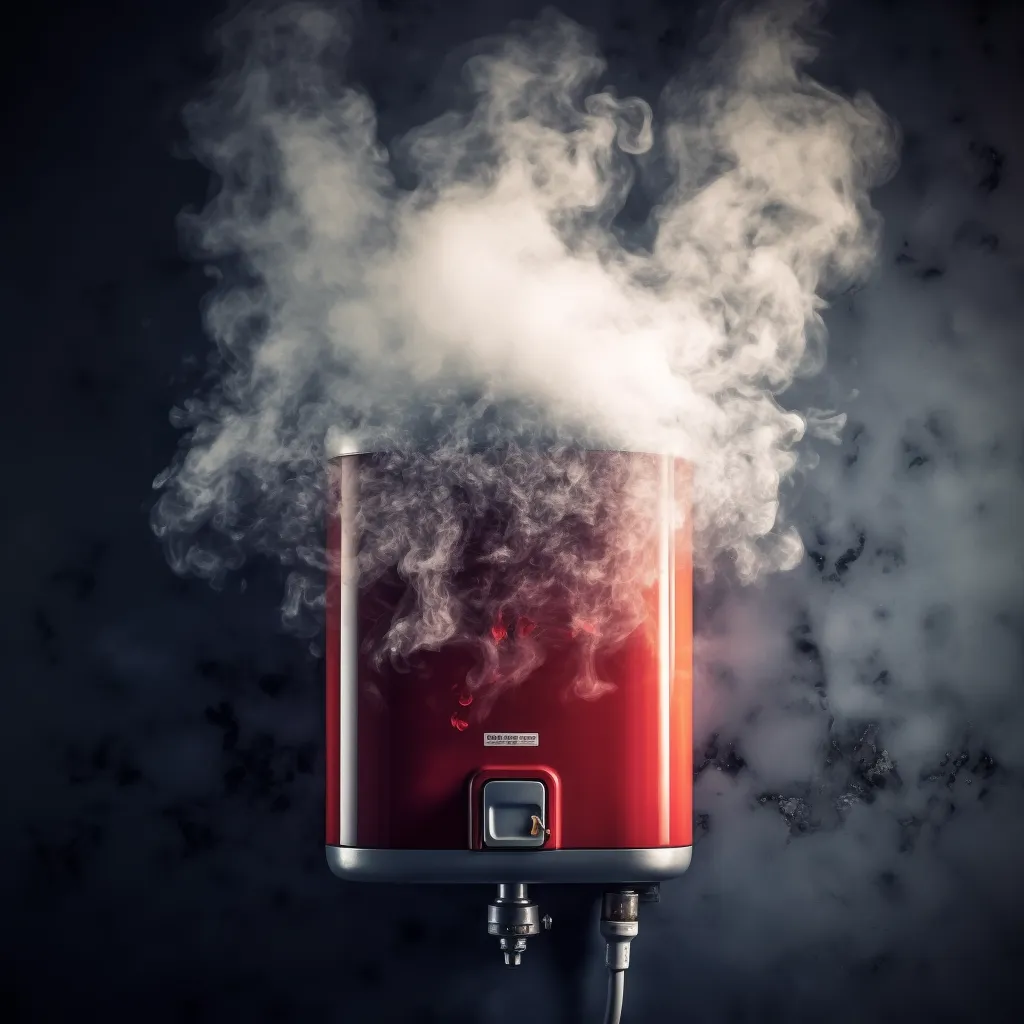
Explore the wide range of water heater options available and discover effective maintenance practices to keep each type operating at its best
It is important for homeowners to understand the different types of water heaters available and their specific maintenance requirements. Each type of water heater may have unique features and maintenance needs. Being aware of these factors can help homeowners make informed decisions and ensure the proper care and maintenance of their water heaters.
Gas water heaters: Flush the tank annually to remove sediment buildup.
Electric water heaters: Consider replacing the anode rod based on age and condition.
Tankless water heaters: Descale the system every few years to optimize heating element performance.
Solar water heaters: Conduct an annual check to assess panel functionality and other components.
Condensing water heaters: Perform annual maintenance checks to identify corrosion and potential issues.
Smart water heaters: Stay updated with software and firmware changes as needed.
Heat pump water heaters: Schedule an annual inspection to address excess heat or concerns.
By understanding the maintenance needs of your specific water heater type, you can prevent problems and ensure long-lasting performance. Regular maintenance will extend the lifespan of your water heater and ensure it operates efficiently.
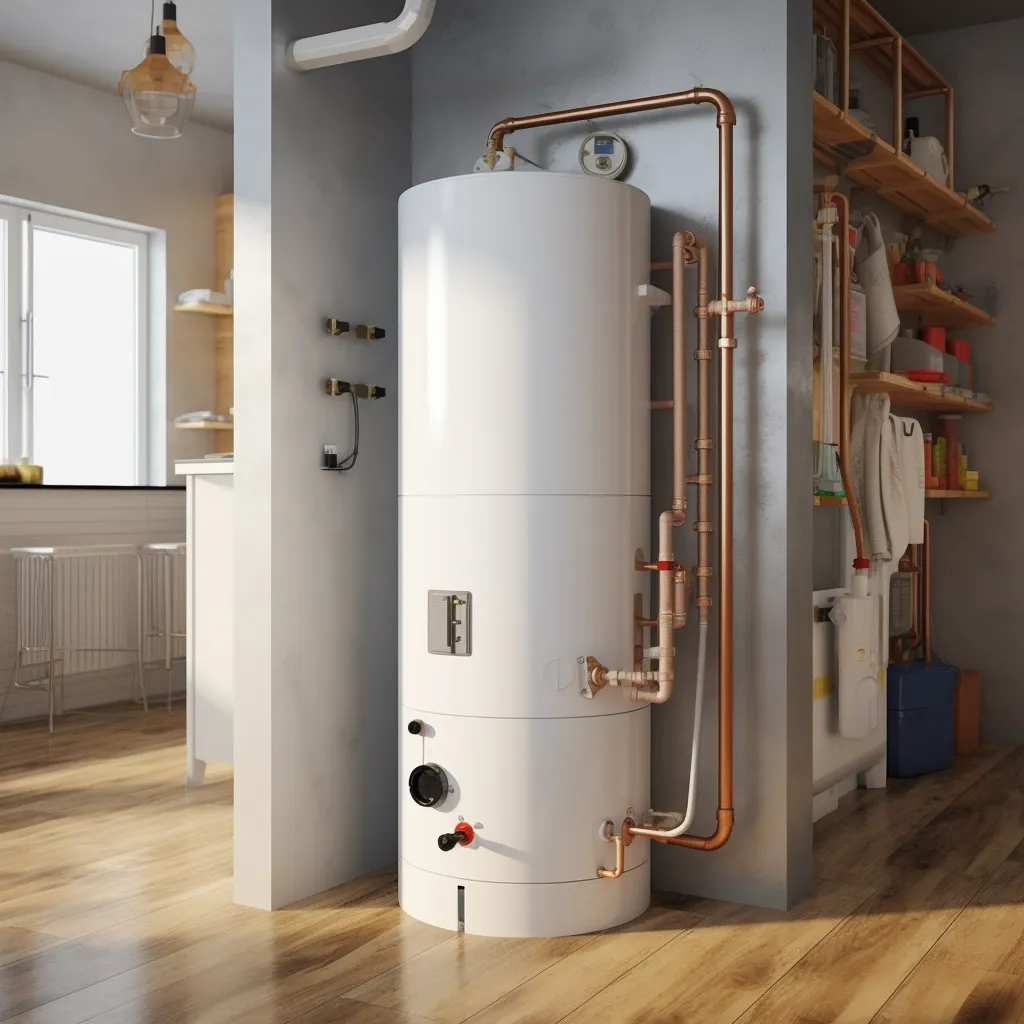
Troubleshooting tips
to help you identify
water heater problems
If you're experiencing issues with your water heater, such as lack of hot water, temperature problems, strange noises, or leaks, you can try troubleshooting before calling a technician. Start by checking the heating element to ensure it's functioning properly. Next, verify the thermostat settings and make any necessary adjustments. Additionally, consider flushing out sediment from the tank, as it can affect the heater's efficiency. Finally, inspect the water heater for any signs of leaks. By following these troubleshooting steps, you may be able to diagnose and potentially resolve the problem yourself, saving time and money. However, if the issue persists or you're unsure about performing these tasks, it's advisable to seek the assistance of a professional.
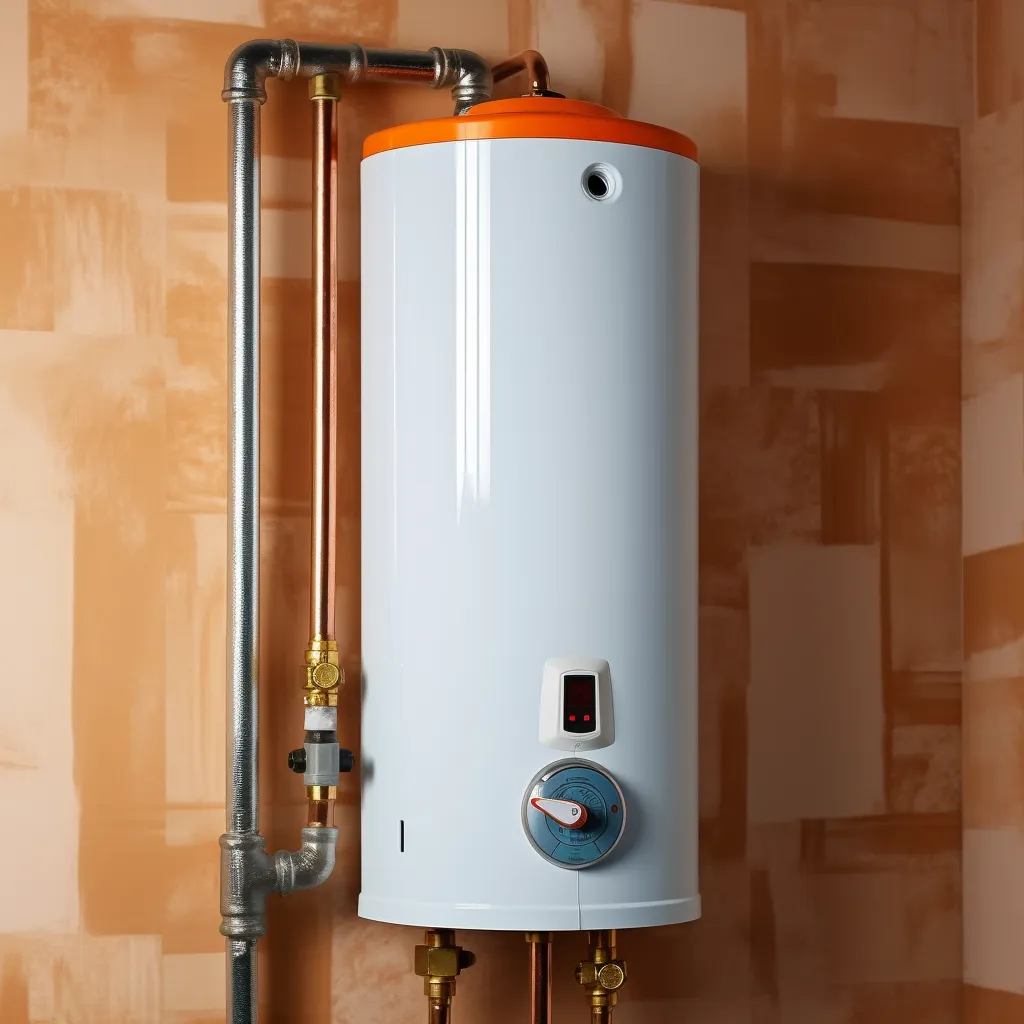
Benefits of hiring a licensed water heater professional
When dealing with a damaged or faulty water heater, it's crucial not to compromise your safety and comfort. Hiring a licensed plumber is the best decision to address the issue effectively. The benefits of relying on a licensed professional include:
Expertise and Experience: Licensed plumbers have the necessary knowledge and experience to diagnose and repair water heater problems accurately. They are trained in handling various types of water heaters and can provide effective solutions.
Safety: Water heater repairs can involve working with electricity, gas lines, and pressurized tanks. Licensed plumbers are well-versed in safety protocols and have the necessary equipment to handle these potentially hazardous situations.
Warranty Protection: Hiring a licensed plumber ensures that the manufacturer's warranty on your water heater remains valid. Attempting repairs yourself or hiring an unlicensed individual can void the warranty, leaving you responsible for the full cost of any future repairs.
Code Compliance: Licensed plumbers are familiar with local building codes and regulations. They will ensure that the repair work is done according to these standards, preventing any potential legal issues in the future.
Peace of Mind: By hiring a licensed professional, you can have peace of mind knowing that the repair work will be done correctly and efficiently. You can trust that your water heater will be restored to optimal functioning, ensuring your comfort and safety.

Research is important
Proper water heater maintenance saves time and money. Monitor temperature, pressure, and connections, check for corrosion and sediment buildup, and research any malfunctions. Learn about different water heater types and their maintenance requirements. Consult a licensed professional for verification and expert guidance.
Contact Us
GET IN FULL TOUCH
PHONE: (505) 448-0742
EMAIL:
patrick@santafewaterheater.com
Baca Specialty Services, Heating and Cooling HVAC
Sante Fe, NM 87508
